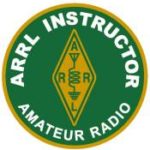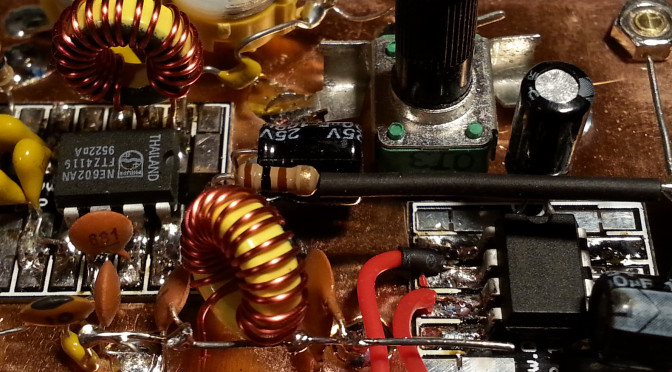
Good Technician class this last weekend. Small, but a lot of fun. The best part of all was the 100% pass rate for the exam.
Okay, now the confession, it was a two student class. Still, I am happy about the two newly minted hams.
Last weekend was a VE weekend, so I was examining not teaching. As is the norm, when we are not grading exams, we jack-jaw. Mostly about radio operations, sometimes the conversation leans technical. In recent months we have been haveing
 In recent months the chatter has been about the ham population. Two specific areas have topped the conversations. The first is centered on the retention of Volunteer Examiners and engaging the VE community. The second topic of conversation has to do with a special anniversary coming up in a few days.
In recent months the chatter has been about the ham population. Two specific areas have topped the conversations. The first is centered on the retention of Volunteer Examiners and engaging the VE community. The second topic of conversation has to do with a special anniversary coming up in a few days.
February 23, 2007, was the date the FCC dropped the CW (Morse code) requirements from all amateur radio licenses. Back in February 1991, the FCC dropped the code requirement for the Technician class license but it was the 2007 removal of code that made it upgrading a no-code Tech possible.
There was a boost to the number of new hams in the early 90s, but the number of new hams, and upgrades, since 2007 has been record breaking. So this is all great news for hams right?
Well, maybe. The truth is, there is no telling what’s going to happen. Part of what makes this an interesting subject is that we don’t know why all these new hams have been drawn to amateur radio.
There are a number of possibilities, some centered around the huge and ever-growing population of DIYers and Makers, many of whom show interest in RF, at least on some level. There are the growing number of drone enthusiasts; some need a ham license to control the aircraft itself, others are looking for telemetry, and/or looking at RF video feeds.
What does someone’s reason for becoming a ham have to do with anything? It has to do with retention. Ham licenses are valid for ten years. That’s a long time. Someone who is deeply invested in the hobby is more likely to renew their license. Someone who is involved at a more casual level is less invested and may not feel the need to renew.
Here we are. It’s now ten years later and the first upgrades without a CW requirement are beginning to expire. The big question is will they renew.
My hope, of course, is that the attrition rate will not grow at the same pace as the influx of new hams over the last ten years. Only time will tell.

